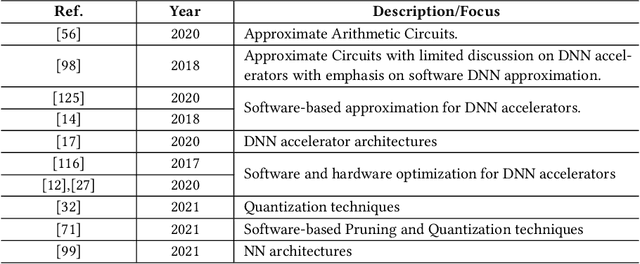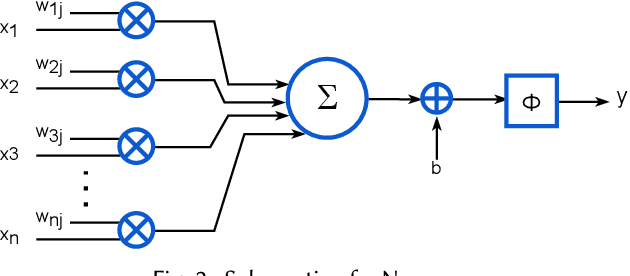Hardware Approximate Techniques for Deep Neural Network Accelerators: A Survey
Paper and Code
Mar 16, 2022



Deep Neural Networks (DNNs) are very popular because of their high performance in various cognitive tasks in Machine Learning (ML). Recent advancements in DNNs have brought beyond human accuracy in many tasks, but at the cost of high computational complexity. To enable efficient execution of DNN inference, more and more research works, therefore, exploit the inherent error resilience of DNNs and employ Approximate Computing (AC) principles to address the elevated energy demands of DNN accelerators. This article provides a comprehensive survey and analysis of hardware approximation techniques for DNN accelerators. First, we analyze the state of the art and by identifying approximation families, we cluster the respective works with respect to the approximation type. Next, we analyze the complexity of the performed evaluations (with respect to the dataset and DNN size) to assess the efficiency, the potential, and limitations of approximate DNN accelerators. Moreover, a broad discussion is provided, regarding error metrics that are more suitable for designing approximate units for DNN accelerators as well as accuracy recovery approaches that are tailored to DNN inference. Finally, we present how Approximate Computing for DNN accelerators can go beyond energy efficiency and address reliability and security issues, as well.
 Add to Chrome
Add to Chrome Add to Firefox
Add to Firefox Add to Edge
Add to Edge